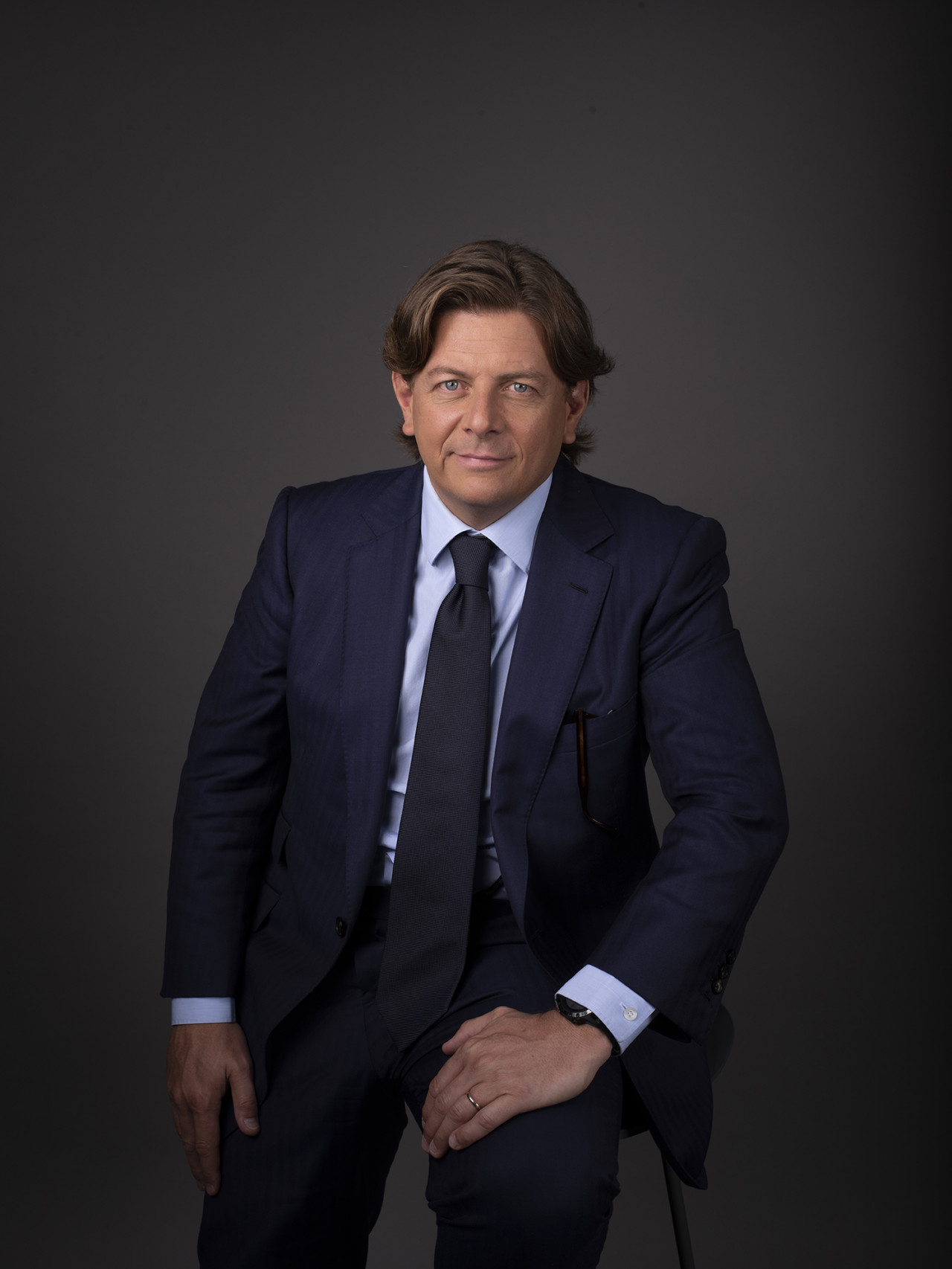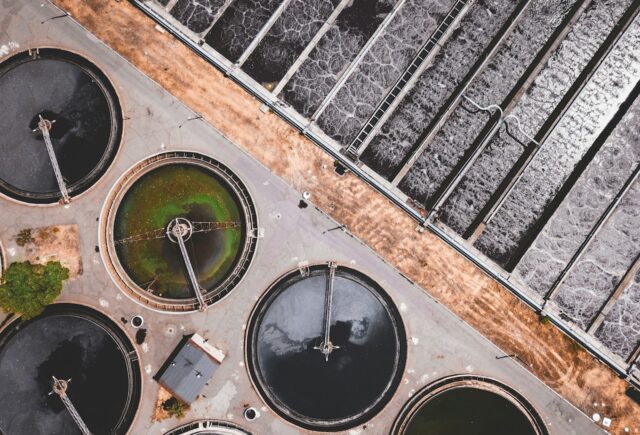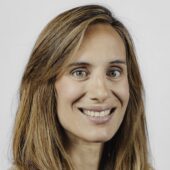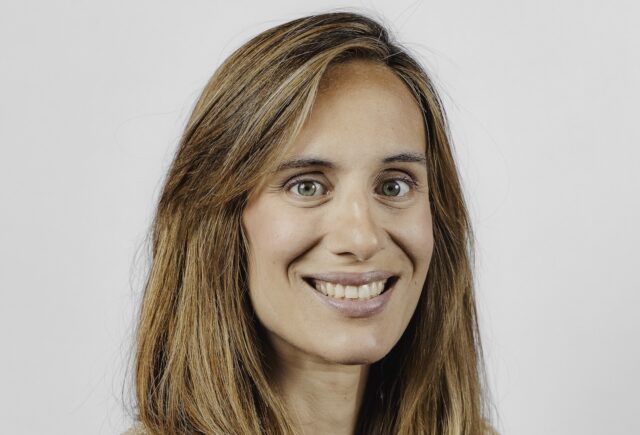As he launches yet another new investment fund, we talk to Mathieu Chabran, the co-founder of Tikehau Capital, who’s striving “to make impact institutional”.

CV
- Co-founder Tikehau Capital, 2004-present
- Deutsche Bank Real Estate Debt Market (London), 2002-2004
- Merrill Lynch Principal Investment (Paris); High Yield Capital Market & Leveraged Finance (London), 1998-2002
- ESCP Business School Paris, 1997-2000
For Mathieu Chabran, the French investor, last year has been “just like a normal year.” It’s very much business as usual for the company he founded, Tikehau Capital.
Tikehau (pronounced like its stock market ticker – ‘T K O’) is named after a coral reef in French Polynesia and means ‘peaceful landing’. The fund’s mission is to finance and actively engage with companies across a diverse range of sectors that have the potential to enable the global shift towards a net-zero carbon economy.
Sustainability is embedded in the asset manager’s investment philosophy. “We believe you have to be sustainable to be profitable,” says Chabran. They have developed a proprietary ESG framework for bond investing that is taken across their activities.
Tikehau is one of Europe’s largest alternative asset managers, with over €29bn of assets under management across four alternative asset classes: private debt (€9.3bn), real assets (€10.5bn), private equity (€3.7bn) and capital markets strategies (€4.2bn).
Francois Fillon, the prime minister of France under Nicolas Sarkozy, was a senior adviser, and Tikehau pulls in high profile backers like Bernaud Arnault, the CEO of LVMH.
It was only a few years ago, in 2018, that the investment firm launched the first private equity fund dedicated to the energy transition. This fund attracted €1bn from institutional investors, including CNP Assurances.
New funds
If anything, Chabran’s drive into impact investing is accelerating; he’s inventing more new ways to fight climate change.
“Our mission is to make impact institutional.”
This week the Frenchman announced the launch of an impact credit fund, TIC. It will focus on three areas: green or sustainability-linked bonds, issuers pledged towards fighting climate change, and a sector-agnostic approach to companies with the potential to contribute positively to climate change mitigation.
A key goal of the fund is a 30% carbon intensity reduction target compared to the High Yield ESG index (ICE Global High Yield ESG Tilt Index). A minimum 25% will be invested in issuers highly exposed to climate change which need to accelerate their transition and where impact can be meaningful, eg. manufacturing, agriculture, and transportation.
This comes hot on the heels of Tikehau’s deal [pdf] with CNP Assurances launching a unit-linked product bringing individuals access to private equity in the energy transition sector. A Unit Linked Insurance Plan (ULIP) is a product offered by insurance companies that gives investors both insurance and investment under a single integrated plan.
Then there’s Tikehau’s Impact Lending Fund which Chabran tells us is “innovative”, because it provides capital debt financing to borrowers with a margin ratchet, which is a clause that will allow them to reduce their cost of financing if they achieve certain specific impact goals.
For example, he says, an industrial business might have its financing costs reduced in line with its success in reducing its emissions. The fund received a €100mn investment from several investors including the European Investment Fund, part of the European Investment Bank.
“I would be lying if I said that twenty years ago, I was dreaming of setting up a green fund. We saw where investor demand was going. Perhaps most important: we were driven in that direction by our own employees.”
Mathieu Chabran, co-founder of Tikehau Capital

Climate change is the biggest investment opportunity
Rather than throw up his hands in despair about the changing climate, Chabran considers it nothing short of “the greatest opportunity in my lifetime as an investor.” He cites the International Energy Agency estimate that €7.5trn of capital is needed in the next ten years to finance the energy transition.
“It’s my conviction that the industry best placed to mobilise such vast amounts of capital so quickly is asset management,” he says. After all, that amount is less than 10% of the world’s savings. “It’s time to create investment strategies that address the climate emergency.” He also seems to relish the intellectual challenge of the financial engineering needed to address it.
Asked about his own green roots, he admits “I would be lying to you if I said that twenty years ago, I was dreaming of setting up a green fund. We saw where investor demand was going.” Perhaps most important: “we were driven in that direction by our own employees.”
Chabran started his career at Merrill Lynch’s Paris office, where he met his co-founder Antoine Flamarion. After spells at other large banks, both of them decided to set up their own boutique, Tikehau. Chabran believes “la vie ne naît qu’à la frontière du chaos” (“real life is at the frontier of chaos”).
Next generation has different values
The mentality and outlook the pair had working in banking in their twenties was very different to what he finds now amongst his own employees. “Their values are different,” the investor says.
“Money is cheap now. Easily available. For our young people, it is what you do with it that is important.” This is a crucial point for Chabran.
“It’s important to listen to your people. Our people are our main asset. To succeed as a business, we must get our own people to buy into what we are doing.”
A keen rugby fan (he laments that he’s “too old to play now”) Chabran compares his team’s dynamics to those of a rugby team. “They are fifteen on the field, each person getting information during the game. The team wins only when a player passes that on, and his teammates listen to him,” he explains.”
“We listen to the team. They help us shape the direction of the business.” He illustrates this point by stating that the Impact Credit Fund was “an idea that came from a twenty-something presenting at a team offsite in Chamonix.”
High investor appetite in the U.S.
This collaborative, almost democratic way of thinking is something different in New York. Chabran moved his family there in 2018. He thought it was good for them to “get out of their comfort zone.” Perhaps typically, Tikehau’s premises are not in the financial district but rather in the hip and trendy Meatpacking District.
“The move to New York has paid dividends in terms of fundraising. Chabran believes the opportunities for impact investors in the States are on a different scale to Europe.
In the teeth of Covid, he worked with different consultants conducting detailed due diligence remotely. This paid off.
Tikehau is launching a Private Equity Decarbonization Fund focused on North America, with co-investment from a perhaps surprising source – Total.
New York City Employees Retirement Scheme invested in what they describe as “a unique platform”- T2, Tikehau’s European energy transition fund. “It was so good they came with us – a real milestone,” Chabran says.






